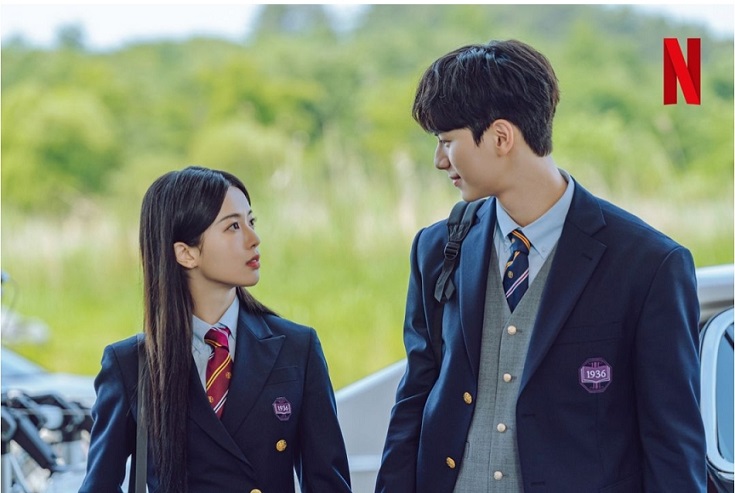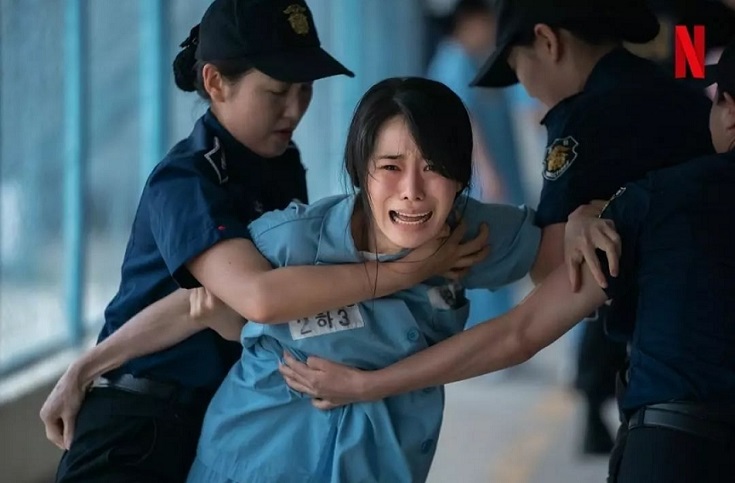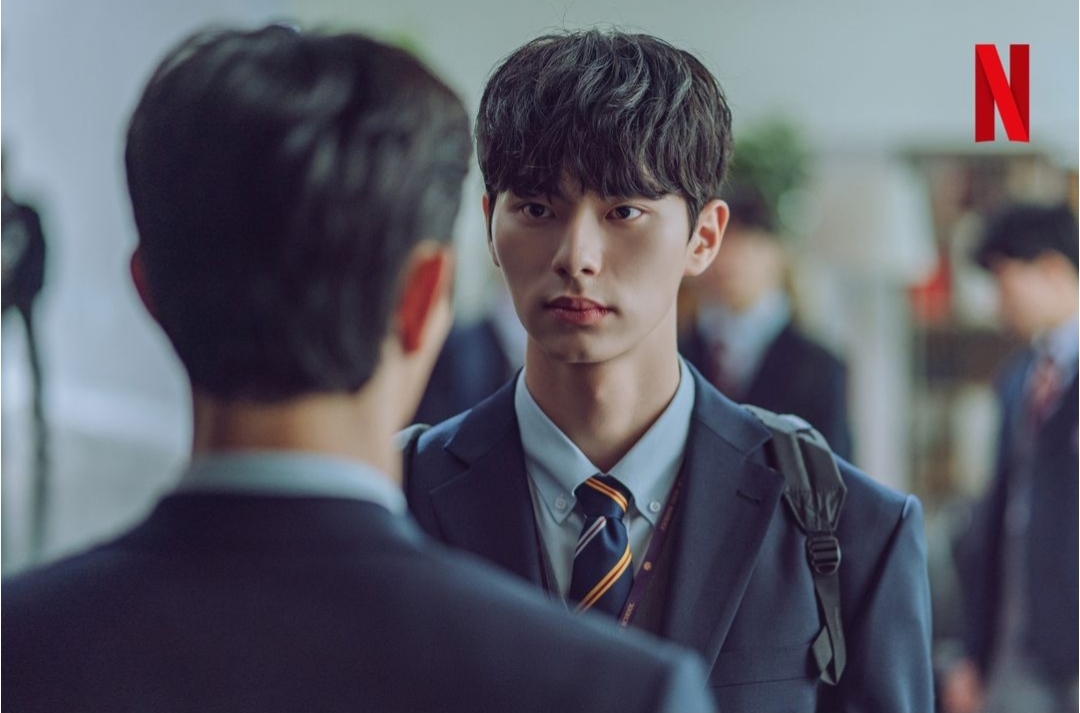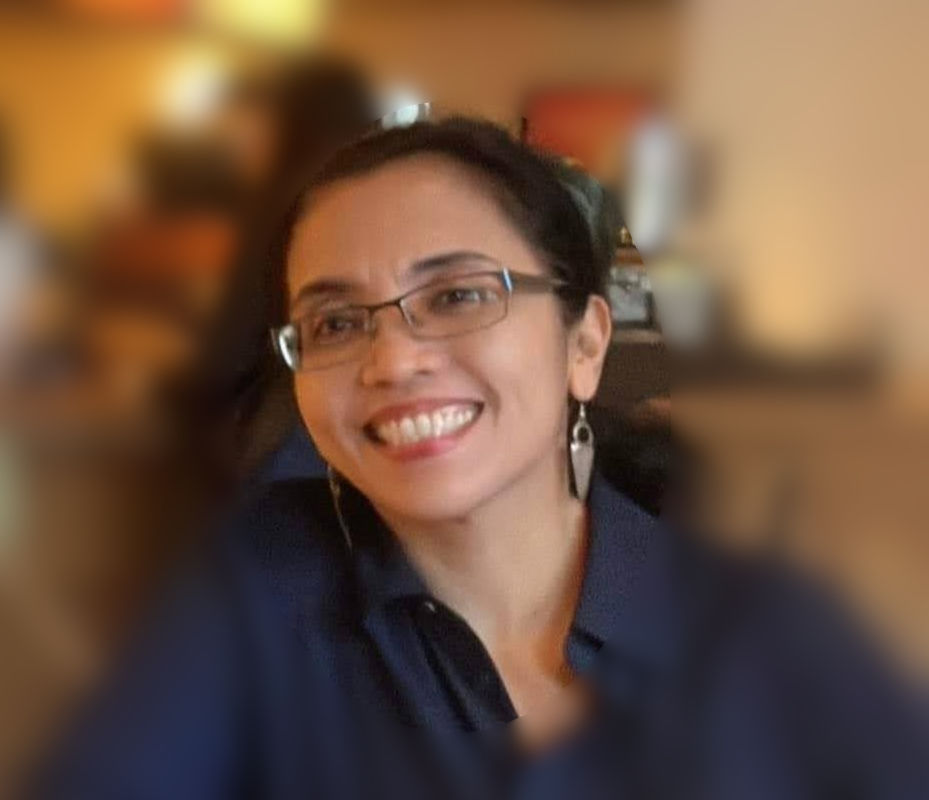Kang-ha attends Jooshin High School to find out who killed his brother, Kang In-han, in “Hierarchy,” a new bully-themed K-drama series. He discovers the horrific truth that his school turns a blind eye to bullying, and that children from affluent families are the bullies. Worse, the principal and teachers cower in silence.
“Hierarchy” is more subdued than “The Glory,” the series that spotlighted bullying in Korea and fueled the movement Hakpok #MeToo advocating for the naming and shaming of former school bullies, according to time.com. (Hakpok is Korean for school violence.)
Viewers lauded “The Glory” and panned “Hierarchy” for its weak storyline but applauded the swole male leads, Lee Chae-min (Kang-ha) and Kim Jae-won (Kim Ri-an). “Hierarchy” has its shortcomings, but readjusting the focus reveals an added dimension to the never-ending discussion on bullying. Naturally, with the K-drama creative flair, writers wove reality with hyperbolical scenes, i.e., Jooshin High’s power student-couple deciding on their breakup on the race track.

Bullying 101
Kang-ha flouts Jooshin High’s hierarchy. He isn’t cowed into submission by the bully quartet: Ri-an of the Jooshin Group; Jung Jae-i of the Jaeyool Group; Lee Woo-jin, son of a politician; and Yoon He-ra of International Yoon. His bonhomous attitude infuriates them and rattles the “scholarship kids” — poor students on study grants at Jooshin — who suffer from Kang-ha’s impudence and try, in vain, to make him toe the line.
Bullies aren’t necessarily low-brow, penurious young adults. They can be anyone because bullying is aggressive behavior against children involving a real or perceived power imbalance, as explained in the website stopbullying.gov. It can be verbal (teasing, taunting, making inappropriate sexual comments and threats of harm), physical (hitting, kicking, spitting, making rude hand gestures, destroying possessions) or social (ostracism, spreading rumors, and public embarrassment).
Ri-an doesn’t get his hands dirty — his minions do the job — except when he learns that Jae-i’s half- brother has filmed him and Jae-i together. Jae-i ostracizes people. She belittles He-ra’s relationship with Ri-an, saying she is beneath him. She freezes out Kang-ha and was a bystander to Kang In-han’s bullying.
Scarily, adults can be bullies. Jae-i’s father always threatens to disown her while her half-brother taunts her and her mother as worthless women. Ri-an’s mother emotionally abandons him and has a retinue of experts and servants to raise him. Both are badgered incessantly to be perfect and uphold the family’s reputation. (The mobster-themed “Vincenzo” has a more violent sibling character in Jang Han-seok who beats his half-brother, Jang Han-seo, when he loses his temper or his plans go awry.)
Art imitating life
Bullying is ubiquitous worldwide yet it seems to be associated with South Korea as its celebrities, athletes, and others of their ilk are regularly called out for bullying. Per time.com, actors like Jeon Jong-seo was said to have been involved in school fights, stolen others’ uniforms, and cursed fellow students a decade ago, while Song Ha-Yoon was accused of hitting classmates.
Kim Ji Soo was condemned online for physically and sexually harassing his high school classmates. He has since apologized for the bullying and taken legal action against those who spread allegations of sexual harassment. (A philstar.com report said he’s made inroads in Philippine TV as Adrian Park, a hired assassin, in GMA’s action-drama series “Black Rider.”)
Ahn Gil-ho, director of “The Glory,” admitted to — and apologized for — physically assaulting students in high school after an anonymous online post emerged about him being a bully.
Baseball pitcher An Woo-jin, denounced for assaulting his teammates, was suspended by the Korea Baseball Softball Association and banned from representing his country in the Olympic Games and Asian Games.
Senior prosecutor Jung Soon-shin’s appointment as chief of the National Office of Investigation was rescinded by President Yoon Suk-yeo, who has vowed to combat bullying. The prosecutor defended his son accused of verbally harassing a high school classmate, instead of holding him accountable.
Psychologists told time.com that bullying continues in South Korea because of the collectivist culture, peer pressure, and the cutthroat education system, which has students spending up to 16 hours at school and private academies.
In the Philippines, inquirer.net reported that 65 percent of Filipino students polled had been bullied a few times a month while 40 percent were bullied once a week, as revealed in the 2018 Programme for International Student Assessment (Pisa) survey. The percentages of students exposed to bullying were the highest among all countries that participated in Pisa 2018.
Sen. Sherwin Gatchalian, chair of the Senate committee on basic education, told philstar.com: “At least 7 out of 10 students in Philippine public schools have suffered bullying, ranking the country first among 70 [countries] with the problem.”

My kingdom
Bullies reign in school. In “Hierarchy,” and Ri-an and his underlings’ kingdom is Jooshin High. In “Itaewon Class,” Jang Geun-won, rules his high school. He becomes Park Sae-ro-yi’s nemesis after Sae-ro-yi punches him to stop his bullying.
In “The Uncanny Encounter,” So Mun can’t help his best friend Hyuk-woo from bullies because he’s in crutches. When he becomes a Counter — someone who goes after rogue demonic souls — he puts them in their place with his newfound strength, fighting skills, and powers (superhuman speed, psychokinesis, psychometry).
In “The Glory,” bullies beat up and burn Moon Dong-eun, making her drop out of high school. Like in “Hierarchy,” her bullies are privileged: TV weather presenter Park Yeon-jin (the main tormentor): boutique owner Jeon Jae-jun; and painter Lee Sa-ra. In contrast, Choi Hye-Jeong, the fourth member of the group and a flight attendant, is bullied for her plebeian background.
Likewise, bullies lord it over military camps. In “D.P.,” senior officers perpetually power-trip on their junior officers during their national service. Placed in the DP (deserter pursuit) team for his national service, An Jun-ho brings back to camp soldiers who go AWOL. He witnesses the bullying of his fellow national servicemen, and realizes that they desert camp to escape the soul-breaking torment.
Power trippers
Bullies are in the workplace, abusing colleagues and employees through gapjil (Korean for bad boss behavior). The word is a portmanteau for when gap, people with power, abuse eul, those who work for them, and it’s traced to the country’s military dictators who enforced a command-and- compliance culture which remains pervasive to this day, wrote Choe Sang-hun in The New York Times.
What former Korean Air flight attendant Park Chang-jin went through in 2014 best illustrates an extreme form of gapjil. Choe related that Park knelt before Cho Yang-ho, daughter of Cho Hyun- ah, the airline’s chair, for improperly serving macadamia nuts in first class. He was then kicked off the flight when the plane, already taxiing at New York’s Kennedy International Airport, was forced to return to the gate.
Choe cited other examples of gapjil use of bullying language, bribe offers, preying on subcontractors, failure to pay workers on time, and sexual harassment by gapjil professors. Meanwhile, imperium protocol is a type of gapjil that’s extended to corporate and government elites, i.e., having subordinates hold umbrellas over them or commandeer elevators, making others take the stairs.
Imperium protocol is well practiced in Jooshin High, where school assembly doesn’t begin until Ri-an is seated and no one leaves, even if dismissed by the principal, until he does, and everyone moves to the side to let him walk first in the hallway.

Adverse effects
Unlike the victims, bullies do not earn sympathy. The effects of bullying on the bullied are tremendous, starting with negative mental health (depression and anxiety), increased feelings of sadness and loneliness, and decreased academic achievement, stated stopbullying.gov. (Gatchalian, as reported in legacy.senate.gov.ph, said Filipino students bullied at least once a few times a month showed a drop in mathematics scores ranging from 11 to 44 points.)
Viewer sympathy is with Kang In-han for what he experienced at Jooshin High right up to when his teacher ran him over. They’re ambivalent about Ri-an and Jae-i because these bullies are also bullied by their families. However, their collective pain still pales in comparison to Kang In-han and especially Dong-eun’s torment, who ends up suffering from adverse childhood experience (ACE) in which violence is a key component.
Per stopbullying.gov, ACE is a traumatic event that has a negative, lasting effect on a person’s development, the way the person interacts with others, and how the person performs in school. Bullying and cyberbullying are classified as ACEs because of the prolonged, repeated abuses.
Dong-eun is withdrawn from society, intently focused on her revenge. She only interacts with her assistant, Kang Hyeon-nam, whom she saves from an abusive husband. Her meeting Joo Yeo-jeong, who helps with her revenge, leads her back to the world of the living.
That youth bullies are also affected by their actions is a prickly subject, but they are. In their adulthood, they abuse alcohol and drugs, and are abusive towards other people, said stopbullying.gov. Yeon-jin betrays her husband and Sa-ra wallows in her drug addiction. Geun-won kidnaps Sae-ro-yi’s girlfriend and attempts to kill her and Sae-ro-yi.
Real changes
The bullies getting their comeuppance is K-drama serving sweet justice. Kang In-han’s tormentors are investigated and the killer jailed. Dong-eun is avenged: Yeon-jin is jailed; Jae-jun falls into a pool of cement; Sa-ra is imprisoned; and Hye-Jeong becomes mute after being stabbed by Sa-ra.
But it’s difficult to pin down bullies in Korea outside of K-drama. Undeniably, the public outrage and support are strong. Per m.starnewskorea.com, a 2023 survey of Koreans by Real Research Korea showed 58.3 percent believed celebrities accused of bullying should stop their public appearances until the allegations are verified, while 24.3 percent wanted them to cease all appearances immediately.
The movement Hakpok #Me Too “helped many victims to shed the shame of their experience and realize they were not bullied ‘because they were lacking something,’” said Noh Yoon-ho, a lawyer specializing in bullying cases, in scmp.com.
But such support doesn’t adequately hold bullies accountable because of certain legalities which the late Pyo Ye-rim, a victim of hakpok and part of Hakpok #MeToo, lobbied to be changed, said scmp.com. She specifically wanted the statute of limitations on school violence cases suspended so bullies could be held liable even decades later, and the defamation law overhauled to better protect victims. Currently, the defamation law allows bullies to threaten and sue their accusers for damages, which, Ye-rim pointed out, “is why no one’s able to talk except anonymously. If this law disappears, countless victims will start speaking out.”
The Korea Times said Ye-rim submitted a bill calling for the removal of the statute of limitations on school violence cases before her suicide in October 2023. The bill was formally introduced to the National Assembly in Korea in September 2023. Tellingly, if the bill is passed, the statute of limitations on school bullying cases won’t start running until the victim has reached adulthood.
Eradicating bullying
The clamor for justice for the bullied didn’t fall on deaf ears. In Korea, measures to strengthen the fight against bullying were finalized, as reported by The Korea Herald. First, the students’ history of bullying, school violence, and forced school transfer due to bullying are now included in the assessment for regular college admissions. Previously, university applications were assessed based on grades, attendance, test scores, after-school activities, and teachers’ recommendations.
Next, the bullying record retention is now four years, up from the original two. Also, with the exception of bullying records from middle school, school violence records will be submitted to colleges “voluntarily” in the admissions process for 2025, which will be mandatory by 2026.
In the Philippines, Gatchalian emphasized the need to effectively enforce the 2013 Anti-Bullying Act. He’s also lobbying for the enactment of the proposed Basic Education Mental Health and Well-being Promotion Act to institutionalize school-based mental health programs.
That bullying shouldn’t be normalized is the subtext of “Hierarchy,” which was overshadowed by the effete romance subplots. They were ineffective in moving the story along, affecting the flow of the series, which, to begin with, was already hampered in presenting fully developed characters and a more structured storyline because of the limited episode number.
Nonetheless, “Hierarchy” carried on the discussion on bullying, showing how “honorable” people are actually hooligans in disguise. Bullying is bullying, after all, whether you’re dressed to the nines or garbed in ratty clothes.

